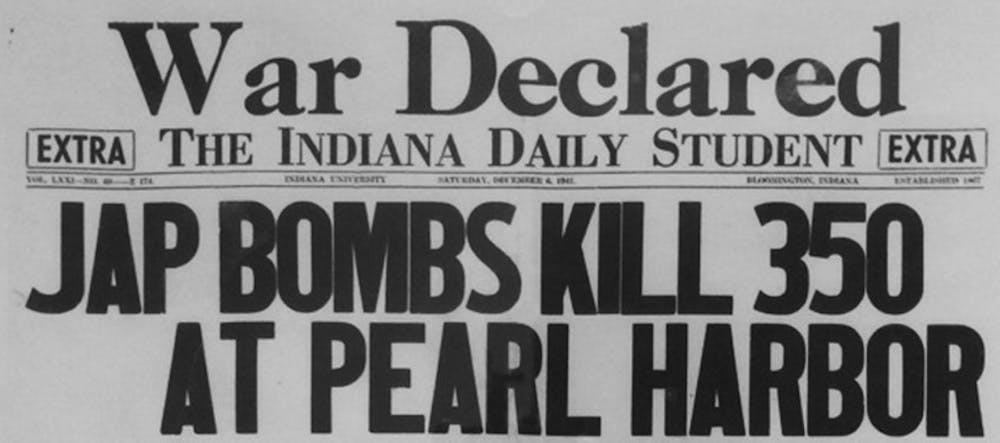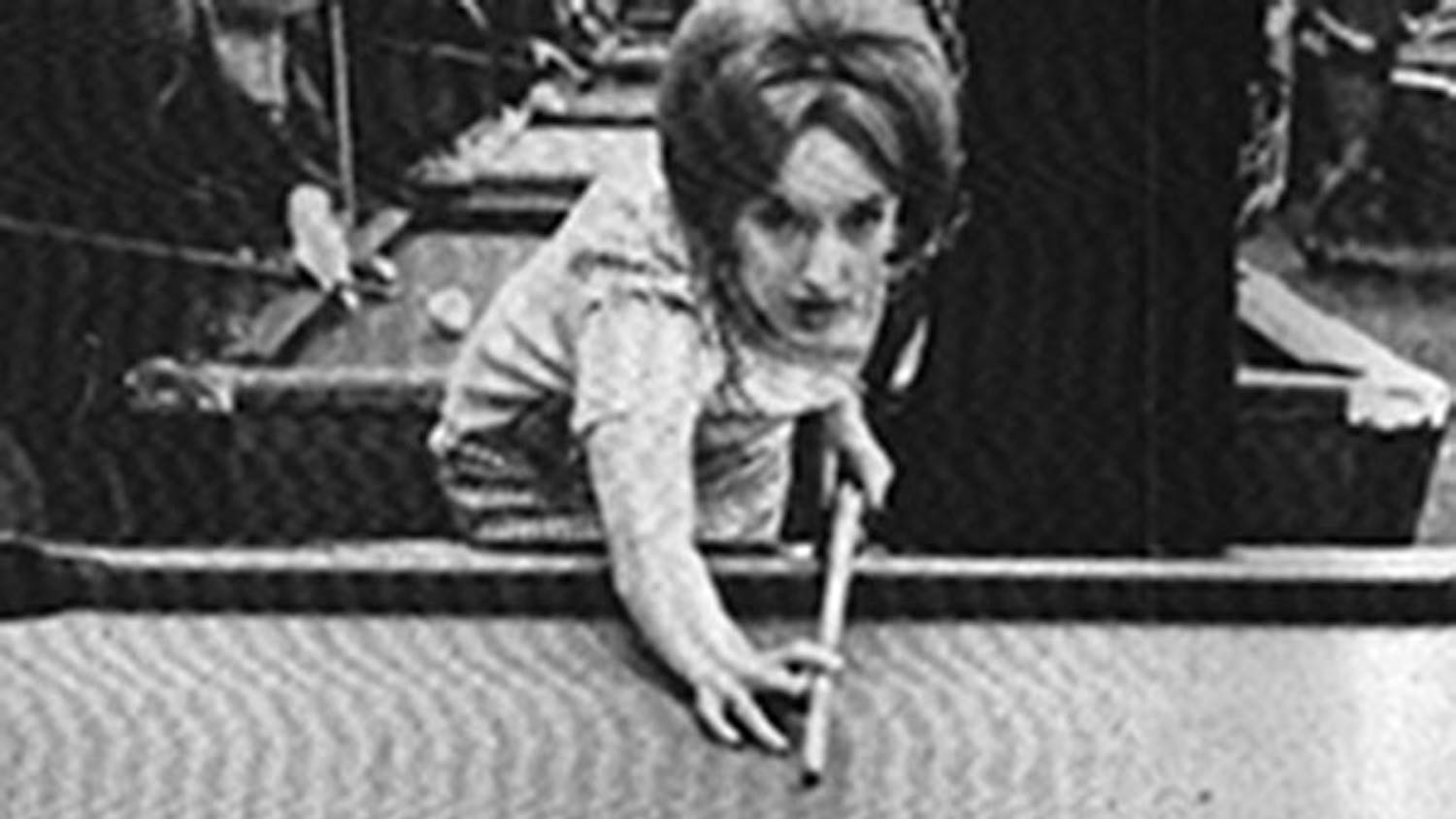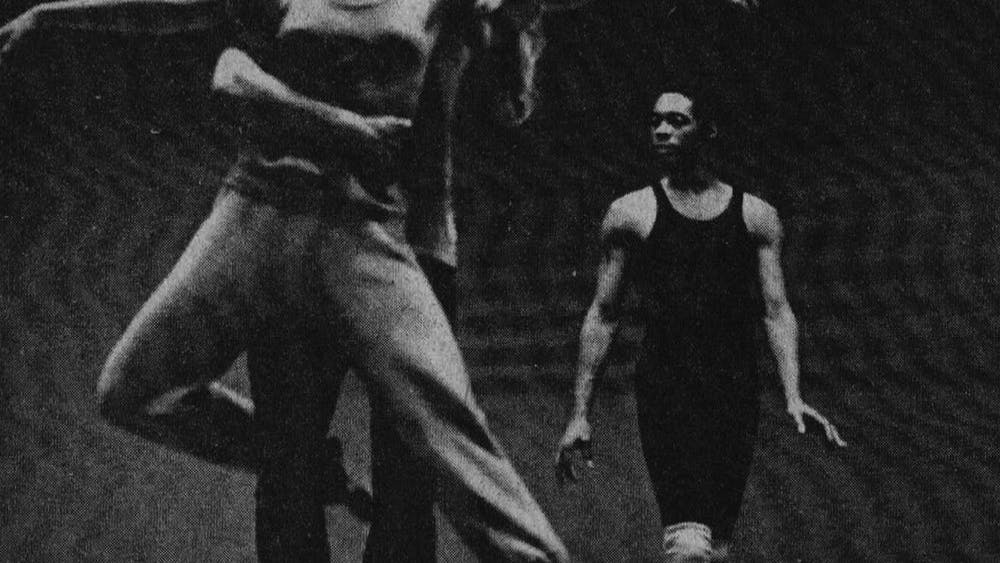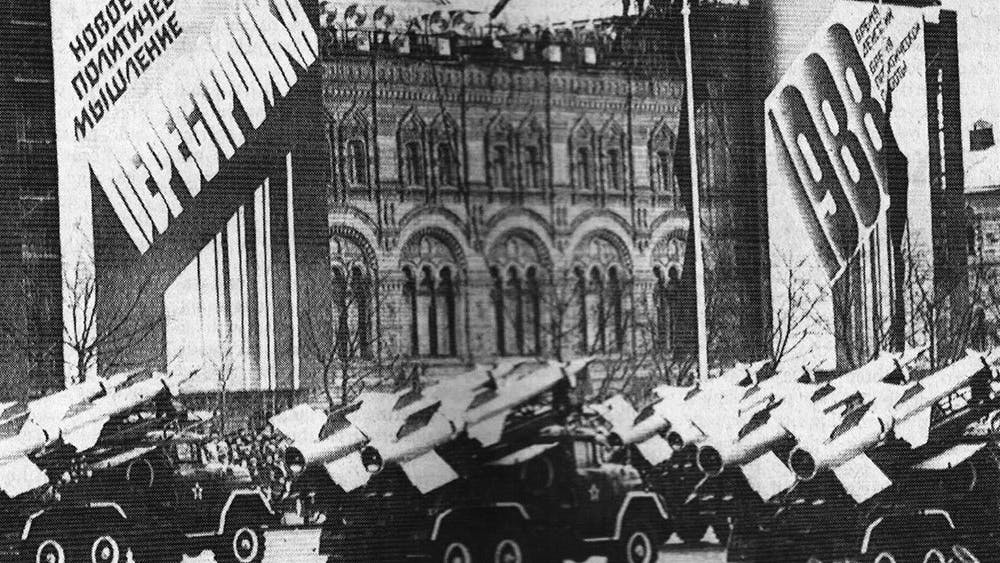Transcription: U.S. Wins First Battle Is Report
By The Associated Press
Japan attacked the United States today, striking by air at the great Pearl Harbor Naval Base at Honolulu, and latest reports indicated that the United States had won the first battle in the new world war.
A bulletin from Honolulu said a naval engagement was in progress off that famed island playground, with at least one black aircraft carrier in action against Pearl Harbor’s defenses.
Planes Battle Over Honolulu.
The British radio also reported that a “foreign warship” had begun bombarding Pearl Harbor.
Aerial dogfights raged in the skies over Honolulu itself as American warplanes rose to give battle to the Japanese invaders.
In Washington, the White House announced that a U.S. Army transport, carrying lumber rather than troops, had been torpedoed 1,300 miles west of San Francisco – thereby placing Japanese naval action well east of Hawaii, toward the United States mainland.
Damage to Base Unknown.
An N.B.C. broadcast from Honolulu said the Japanese attack had inflicted untold damage on the U.S. naval base at Pearl Harbor and on the city itself.
Several Japanese planes were reported shot down.
First reports from Honolulu said at least two formations of nine four-motored black bombers, marked with Japan’s rising sun insignia, flew over Honolulu.
On the Pacific coast, the army and navy went onto an immediate war-time basis. All leaves were cancelled, all furloughs revoked. Every man was ordered to report to his post.
Announcing the President’s action for the protection of American territory, Presidential Secretary Stephen Early declared that so far as is known now the attacks were “made wholly without warning – when both nations were at peace – and were delivered within an hour or so of the time that the Japanese ambassadors had gone to the state department to hand to the secretary of state Japan’s reply to the secretary’s memorandum of the 26th.
Promptly, Navy officers said that long prepared counter measures against Japanese surprise attacks had been ordered into operation and were “working smoothly.”
And within a few minutes, the War department ordered all military authorities because they feared the President’s direct negotiations with the emperor might lead to an about-face in Japanese policy and the consequent loss of face by the present ruling factions in Japan.
Stephen Early, presidential secretary, said that as soon as the information of the attacks on Manila and Hawaii was received by the War and Navy departments it was flashed immediately to the President at the White House Thereupon and immediately the President directed the Army and Navy to execute all previously prepared orders looking to the defense of the United States.
Kichisaburo Nomura, the Japanese ambassador, and Saburo Kurusu, the special Japanese envoy, were at the State department at the time of the White House’s announcement of the attacks.
The two Japanese went to see Secretary of State Hall at 1:35 p.m. (EST) and remained about 20 minutes.
They handed to the secretary Tokyo’s reply to the statement of principles which he gave to them on Nov. 26.
After their departure, the State department announced that Hull had informed the Japanese that a document presented by them was “crowded with infamous falsehoods and distortions.”





